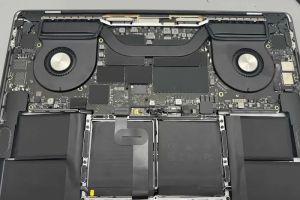Does a Computer Repair Shop Void Warranty? What You Need to Know
- 1. Introduction: Understanding Warranties and Repairs
- 2. What Does a Warranty Cover and How Does it Work?
- 3. Can Taking Your Computer to a Repair Shop Void Your Warranty?
- 4. When Can a Repair Shop Void a Warranty?
- 5. How to Protect Your Warranty When Getting Repairs
- 6. Real-Life Cases: How Repair Shops Have Affected Warranties
1. Introduction: Understanding Warranties and Repairs
When your computer breaks down or develops issues, it can be tempting to take it to a local repair shop for quick fixes. However, one crucial concern that often arises is whether taking your device to a repair shop could void the warranty. The warranty is an important aspect of owning a new computer, as it ensures that manufacturers will cover certain repairs and defects for a specific period. The last thing you want is to unknowingly jeopardize that warranty by allowing a third-party service to handle your computer.
As someone who has encountered this dilemma firsthand, I’ve learned that the relationship between repair shops and warranties can be a bit complex. Not all repair shops will void a warranty, but certain actions could potentially affect your rights. Understanding how warranties work, the role of repair shops, and when you should be cautious can help you navigate these situations without losing coverage on your device.

Action Computers Inc. -- Denver Location
2890 S Colorado Blvd F, Denver, CO 80222, USA
2. What Does a Warranty Cover and How Does it Work?
Before diving into the question of whether a repair shop can void a warranty, it’s important to first understand what a warranty is and what it covers. In simple terms, a warranty is a legal promise made by a manufacturer or seller to repair or replace a product if it breaks down or malfunctions under normal use within a specific time frame.
For computers, warranties typically cover issues related to manufacturing defects or hardware failure. If your device breaks down due to faulty hardware, the manufacturer will usually cover the repair or replacement costs. However, warranties do not cover damages caused by misuse, accidents, or unauthorized repairs. This is where the situation can get tricky. If you take your computer to a repair shop and the work is done improperly, or if the shop uses non-approved parts, it could lead to a warranty issue.
Manufacturers often provide two types of warranties: a limited warranty, which covers specific parts and services for a set period, and an extended warranty, which offers more comprehensive coverage for a longer duration. Understanding your warranty terms is key to making an informed decision about repairs.

Fix It Computer Repair
2638 Geranium Ln, Fort Collins, CO 80525, USA
3. Can Taking Your Computer to a Repair Shop Void Your Warranty?
The simple answer is: it depends. Taking your computer to a repair shop does not automatically void the warranty. However, it can affect your warranty depending on a few important factors, such as:
1. Authorized vs. Unauthorized Repair Shops
Most manufacturers have a list of authorized service providers that are approved to carry out repairs without affecting your warranty. If you take your computer to a third-party or unauthorized repair shop, the work done could void the warranty, especially if the shop uses non-certified parts or tools that could damage the device. This is an area where many people run into issues, as it’s easy to assume that all repairs are covered.
2. Type of Repair Done
The type of repair you seek also matters. For example, if you need a simple software fix or a minor upgrade (like adding more RAM), it’s unlikely to affect your warranty. However, if your repair involves opening up the computer or replacing internal components, manufacturers might argue that the warranty is voided because you allowed a third party to access and alter the hardware.
4. When Can a Repair Shop Void a Warranty?
While taking your computer to an unauthorized repair shop doesn’t automatically void the warranty, certain actions may lead to this outcome. Here are some key scenarios where a repair shop could void the warranty:
1. Use of Non-Manufacturer Approved Parts
If a repair shop uses parts that are not approved by the manufacturer, it could invalidate your warranty. This is especially true for critical components like motherboards, processors, or hard drives. Using non-genuine parts can alter your device’s performance, and manufacturers may refuse to honor your warranty if they suspect unauthorized parts were used.
2. Unapproved Modifications or Alterations
Another common issue arises when a repair shop makes modifications to your computer that aren’t covered by the original warranty terms. For example, altering the system’s internal structure or making modifications to the casing could result in warranty voidance. Many manufacturers have specific terms about what modifications are permissible under warranty coverage.
3. Failure to Follow Proper Repair Procedures
If a repair shop does not follow the correct repair procedures or mishandles your device during repairs, the manufacturer might see this as negligence and could void the warranty. This is why it’s important to ensure that the repair shop you choose is reputable and follows industry standards.
5. How to Protect Your Warranty When Getting Repairs
It’s essential to protect your warranty while getting your computer repaired. Here are a few tips to ensure you don’t unintentionally void it:
1. Use Authorized Service Providers
Whenever possible, take your computer to a manufacturer-authorized repair shop. Authorized service providers are trained and certified by the manufacturer, meaning they know exactly what needs to be done to keep your warranty intact. By choosing an authorized provider, you minimize the risk of warranty issues arising.
2. Always Get Repair Documentation
Keep all records of the repair, including invoices, receipts, and a detailed list of the work done. This documentation can be crucial if there’s ever a dispute with the manufacturer about your warranty coverage. The more transparent and well-documented the repair, the easier it is to prove that the work didn’t impact your warranty.
3. Understand Your Warranty Terms
Before seeking any repairs, make sure you understand the terms and conditions of your warranty. Know what’s covered, what’s not, and any exclusions related to third-party repairs. This knowledge will help you make informed decisions and avoid making costly mistakes.
6. Real-Life Cases: How Repair Shops Have Affected Warranties
In real-world scenarios, many people have unknowingly voided their warranties by seeking repairs from unauthorized service providers. For example, a friend of mine had her laptop repaired at a third-party shop that replaced the screen. While the repair was done quickly and at a good price, the technician used a non-approved screen. When her device malfunctioned a few months later, the manufacturer refused to honor the warranty, citing the use of non-certified parts. This situation could have been avoided by using an authorized service center, which would have preserved her warranty coverage.
Another case involved a customer who took their desktop computer to an independent repair shop for a software upgrade. While the software itself didn’t affect the warranty, the repair shop failed to follow proper safety procedures during the upgrade, leading to an issue with the computer’s hardware. When the customer tried to claim the warranty, the manufacturer refused, citing the improper handling of the device. It’s a reminder that even seemingly small repairs can impact your warranty if not done correctly.





























